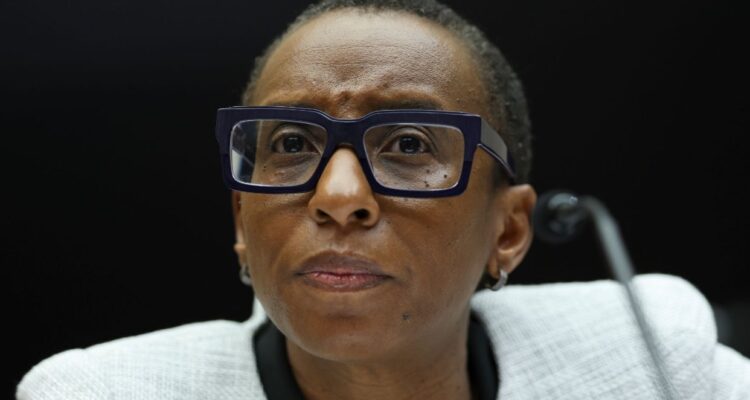A Harvard student who plagiarizes would be liable to expulsion, but the rules are different higher up.
By Daniel Greenfield, Frontpage Magazine
Harvard has decided that President Claudine Gay should stay on with the unanimous support of the board despite the antisemitism and plagiarism.
If she were a student she would have been expelled, but the standards are lower for presidents than for students.
Harvard’s plagiarism policy is that “students who, for whatever reason, submit work either not their own or without clear attribution to its sources will be subject to disciplinary action, up to and including requirement to withdraw from the College.”
Harvard President Claudine Gay, already under fire for saying that calling for the genocide of the Jews requires “context”, turns out to have plagiarized what little work she had done.
In four papers published between 1993 and 2017, including her doctoral dissertation, Gay, a political scientist, paraphrased or quoted nearly 20 authors—including two of her colleagues in Harvard University’s Department of Government—without proper attribution, according to a Washington Free Beacon analysis. Other examples of possible plagiarism, all from Gay’s dissertation, were publicized Sunday by the Manhattan Institute’s Christopher Rufo and Karlstack’s Chris Brunet…
In her 1997 thesis, for example, she borrowed a full paragraph from a paper by the scholars Bradley Palmquist, then a political science professor at Harvard, and Stephen Voss, one of Gay’s classmates in her Ph.D. program at Harvard, while making only a couple alterations, including changing their “decrease” to “increase” because she was studying a different set of data…
Some of the most clear-cut cases come in Gay’s 1997 dissertation, “Taking Charge: Black Electoral Success and the Redefinition of American Politics,” which copied two paragraphs almost verbatim from Palmquist and Voss.
The paragraphs—from a paper Palmquist and Voss had presented a year earlier, in 1996—do not appear in quotation marks. One is unmodified but for a handful of words, and Gay does not cite Palmquist or Voss anywhere in her dissertation
A Harvard student who did that would be liable to expulsion. But the rules are obviously different higher up.
It’s not just Gay. There have been a number of cases of prominent figures getting a pass on plagiarized work. But Gay’s case is particularly bad because the president of Harvard is supposed to be setting an example for students. How could the college possibly justify disciplinary action against students for plagiarism when its own president is guilty of it? What’s the argument for telling students not to cheat?
Cheat and you too can become the president of Harvard.





